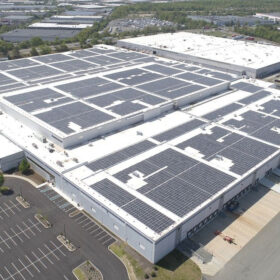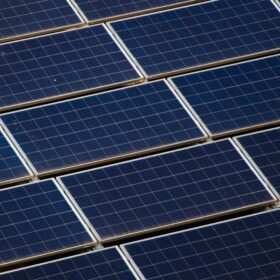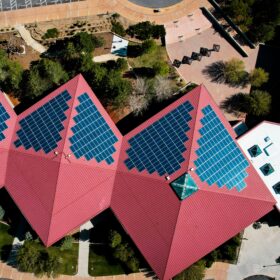Data center power loads threaten corporate net-zero goals
The world’s reliance on the internet, the shift to cloud computing, and the emergence of AI all fuel demand for more and more data centers. The International Energy Agency (IEA) projects that by 2026, data centers will consume more than 800 TWh annually, more than double their consumption in 2022. Tristan Rayner takes a look at the role that renewable generation plays in powering a digital world.
Maldives kicks off tender for 15 MWp of grid-tied solar systems
The Maldives is accepting bids from developers to install 15 MWp of solar systems across selected islands under a design, build, finance, own, operate, and transfer basis. The deadline for applications is Oct. 22.
Israel’s N2OFF enters solar business
Agri-food tech specialist N2OFF says it has entered the PV business by lending €375,000 ($407,000) to Israeli PV developer Solterra Renewable Energy. The loan is part of a larger €500,000 agreement, with the remaining €125,000 to come from other parties.
Grid backlog drives innovative approaches in Brazil
The rapid growth of renewable energy in Brazil has not been matched by transmission and distribution infrastructure. Connection restrictions for both “distributed-” and centralized-generation sites are leading companies to adopt new strategies to maintain expansion, reports pv magazine Brasil’s Livia Neves.
Norway has potential to deploy 31 GW of solar in buildings
A research group has examined the potential for PV on building walls and rooftops across Norway. It says that up to 36% of the feasible solar energy, or approximately 31 GW, could be integrated into the national power system to match generation and consumption patterns.
South Africa commissions largest wheeling project to date
South Africa has commissioned its largest wheeling project, with SOLA Group supplying more than 200 MW of solar power to Tronox Mineral Sands via the Eskom network.
Energy management market to roughly double in Europe by 2030, says LCP Delta
New analysis from LCP Delta finds Germany is Europe’s top market for home energy management systems and predicts European yearly sales will more than double by the end of the decade.
Somalia opens tender for off-grid solar-plus-storage plants
Somalia’s Ministry of Energy and Water Resources has launched a tender for off-grid solar-plus-storage power plants to serve 46 education facilities in the southeast of the country. The deadline for bids is August 1.
Residential PV power forecasting method based uniquely on direct radiation
Researchers in Spain have created a novel PV forecasting method that uses only direct radiation as a parameter. They found it to be “comparable, if not superior” to four established forecasting techniques. The method could help homeowners with PV systems decide when to use electricity-intensive appliances and cleaning systems.
EDF wins Israeli PV tender with bid of $0.019/kWh
EDF has won an Israeli solar tender with a bid of $0.019/kWh, securing a 100 MW project to sell energy at a record price of ILS 0.07 ($0.02)/kWh.










